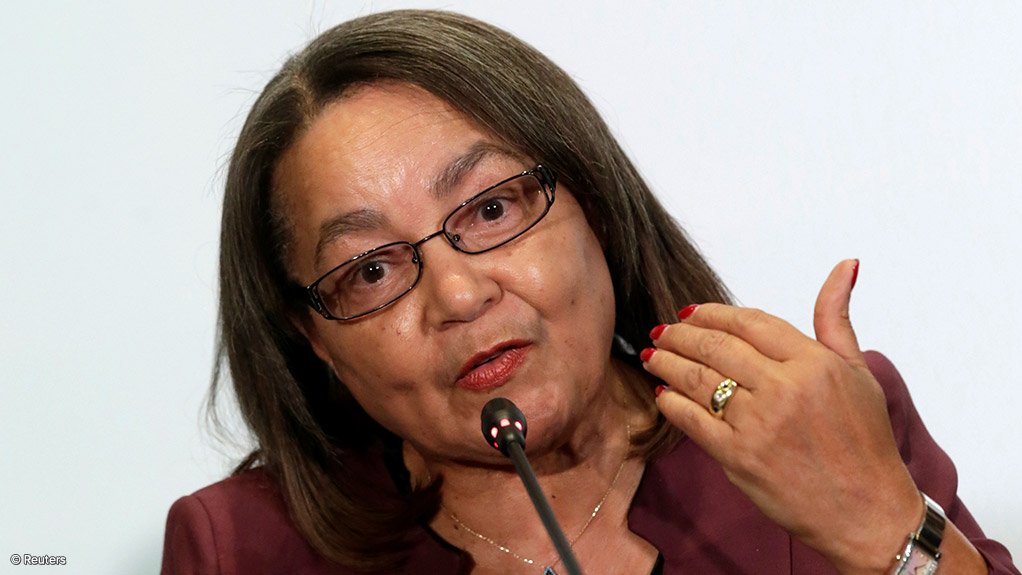The City of Cape Town has lost around R1.6-billion in revenue due to reduced water consumption, making a "drought charge" to fund water supply projects more urgent, said Mayor Patricia De Lille on Tuesday.
"That is R1.6-billion that we are not receiving through the sale of water now," said De Lille.
With dam levels at an average of 29% of capacity, drilling equipment will start arriving this week to extract water from aquifers on the Cape Flats and the Table Mountain aquifers, in addition to extraction already underway in Atlantis on the West Coast.
This followed surveys of the areas last year which confirmed availability of water there.
The Cape Flats aquifer is expected to produce an extra 80-million litres per day, the Table Mountain aquifer, 40-million litres per day, and Atlantis, about 30-million litres per day.
To help pay for the project, the City has proposed a "drought charge", but this still has to be approved by Finance Minister Malusi Gigaba.
460 216 households will be affected by charge
While still waiting for word from Gigaba, who also has to find money for fee-free tertiary education after President Jacob Zuma's surprise announcement in December, De Lille has asked residents for their opinion on the charge.
So far 45 000 people responded to a request for comment ahead of the original deadline of January 10.
These ranged from "yes" to "no", to complaints about how the crisis has been managed. Officials are currently sorting through the responses to get an idea of what residents want.
The deadline for comments has been extended to Monday, January 15, at midnight, to give people more time to have their say.
If approved and introduced, the drought charge will affect 460 216 households.
Of these, 52 510 will pay more than R150 a month for the drought charge, and the rest will pay around R47 per month.
This income will go towards making up for the water revenue lost through the diligent use of under 87 litres per person per day by around 54% of residents.
Day zero
However, there are still households exceeding 10 000 litres a day, and inspectors are visiting them and installing devices to help reduce their usage.
The city still needs average daily consumption to drop from the current 587 million litres per day, to under 500-million litres a day to keep "Day Zero" away.
"Day Zero" is the day when the city's taps run dry and an emergency plan, which includes residents queueing at water points under army and police supervision, kicks in.
The holiday season use kept consumption levels more or less the same due to a balance between the number of people leaving to visit other provinces, and the influx of visitors.
"Day Zero" has, however, once again been moved forward a week to April 22 from the last predicted date of April 29.
This week drilling equipment will start arriving to expand the ground water extraction from Atlantis to the aquifers on the Cape Flats and Table Mountain.
Aquifers to be recharged
John Holmes, CEO of consultants Umvoto, said consultations took place with land owners and farmers over the water extraction and they are all aware of the programme. Farmers' own needs were also taken into account.
A condition of extraction is also that aquifers are recharged.
Treated waste water, which will be clean by the time it is released into wetlands for further filtration, will be used to replenish the aquifers.
Peter Flower, director of water and sanitation for the city, said agricultural water use is currently the highest, even though farmers have been asked to reduce their consumption by 60%.
He said the city also wants the national government to step in to help enforce limitations on how water drawn from private boreholes can be used.
He said that water from these boreholes should only be used for basic household use and not for maintenance of gardens.
Level 6 restrictions
"To keep gardens going just so that they can look nice and green and pretty – we are beyond that," said Flower.
"Recultivation (of gardens) can be done later."
On May 22, 2017, the Western Cape government declared the entire province a disaster area due to the drought.
The Karoo and West Coast municipalities were declared disaster areas in 2016.
Level 6 water restrictions came into effect on January 1, 2018, in Cape Town.
EMAIL THIS ARTICLE SAVE THIS ARTICLE
To subscribe email subscriptions@creamermedia.co.za or click here
To advertise email advertising@creamermedia.co.za or click here











